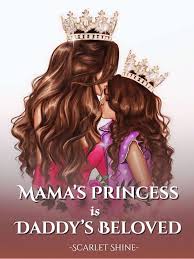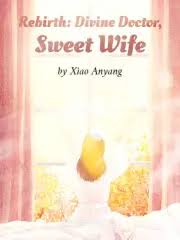The Story in 3 Sentences
In her past life, Fang Xinxin was manipulated by her scheming sister and blinded by false love, ultimately ending up paralyzed and abandoned while her devoted husband Bai Qinghao died protecting her.
Reborn with full memory of her tragic fate, she uncovers that her disfigured appearance was the result of poisoned skincare products and chooses to reject her former illusions, turning instead toward the man who loved her unconditionally.
Embracing her second chance, she transforms her body and spirit, partners with Bai Qinghao to dismantle her enemies, and builds a future defined by love, vengeance, and the birth of their child.
Why It Stands Out
1. A Second Chance That Rewrites Fate
Unlike typical rebirth tales where the female lead simply gains power or wealth, this story hinges on emotional awakening—Fang Xinxin’s realization that true love was always beside her, not ahead in a mirage. Her journey isn’t just about revenge; it’s about unlearning self-hatred and recognizing worth through another’s unwavering gaze.
2. The Military Romance Framework with Emotional Complexity
Set against a modern urban backdrop with military elite aesthetics, the novel blends high-society drama with intimate psychological shifts. Bai Qinghao’s role as a powerful commander isn’t just for show—he embodies the trope of the possessive yet protective male lead, but with layers of trauma, loyalty, and a love so fierce it borders on destructive.
3. Beauty as Liberation, Not Vanity
The transformation arc avoids shallow “ugly duckling” clichés by rooting Fang Xinxin’s physical change in sabotage—her acne and weight were symptoms of poisoning, not inherent flaws. This reframing turns her glow-up into an act of reclaiming autonomy, making her beauty a symbol of survival rather than superficial validation.
Characters That Leave a Mark
There’s Fang Manxue – the elder sister whose jealousy curdles into lifelong manipulation, poisoning skincare products and orchestrating schemes to steal both status and affection, only to be exposed and imprisoned in the final chapters .
You’ll meet Grandma Bai, who arranged the childhood engagement between Fang Xinxin and Bai Qinghao after the girl’s father saved her life—a matriarchal figure whose quiet influence shapes the couple’s destiny from the shadows .
And Bai Haiyang? They’re the one who arrives in the epilogue as the couple’s newborn son, named to commemorate the oceanic depths of their love and resilience, symbolizing the peace earned after years of chaos .
The Flaws Fans Debate
The novel opens with a non-consensual act framed as “punishment,” which many readers condemn as romanticizing sexual violence, regardless of later emotional reconciliation.
Critics highlight inconsistent logic in the time-loop mechanics—events from the past life are sometimes contradicted without clear butterfly-effect justification, undermining the rebirth premise’s internal consistency.
The story indulges in appearance-based judgments, including fat-shaming and skin-color bias, which clash with its message of self-worth and alienate readers seeking inclusive representation.
Must-Experience Arcs
Ch. 1–50: Hospital Awakening – Fang Xinxin regains consciousness after her rebirth, confronts the trauma of her past life, and begins to question her sister’s innocence while navigating Bai Qinghao’s volatile protectiveness.
Ch. 300–400: Corporate Reckoning – Using knowledge from her past, Fang Xinxin helps Bai Qinghao dismantle her family’s business empire, exposing Fang Manxue’s fraud and reclaiming financial independence.
Ch. 800–889: Truth and Legacy – The final arc reveals the bombshell that Fang Manxue and her mother are imposters, culminating in legal justice, the birth of Bai Haiyang, and the couple’s quiet triumph over generational deceit.
Killer Quotes
“Love isn’t about who you dreamed of—it’s about who stayed when the world turned its back.”
“You called me ugly, but you never saw the poison in your own hands.”
“Rebirth isn’t a gift. It’s a debt—and I intend to collect every tear I owed myself.”
Cultural Impact
The novel sparked intense debate across Webnovel and Novel Updates forums, with readers split between those who praised its emotional redemption arc and those who boycotted it over its handling of consent.
Despite controversy, it amassed over 8 million readers on Webnovel, becoming a frequent nominee in “Hidden Gem Rebirth” recommendation lists among English-speaking xianxia and urban fantasy communities .
Its alternate title, “Sweet and Pampered Military Marriage: Spare Me, Commander!”, became a meme template for ironic commentary on toxic-yet-romanticized male leads in Chinese web fiction .
Final Verdict
Start Here If You Want:
A cathartic second-chance romance where love and vengeance intertwine across lifetimes.
A female lead who evolves from passive victim to strategic avenger without losing her emotional core.
High-stakes family drama fused with military elite aesthetics and a slow-burn marital bond.
Study If You Love:
Narratives that interrogate the ethics of rebirth—how memory shapes agency, and whether forgiveness can coexist with retribution.
The evolution of the yandere archetype in modern Chinese web novels, particularly how possessiveness is reframed as devotion.
The tension between bodily autonomy and romantic idealism in urban fantasy settings where power imbalances define relationships.
Avoid If You Prefer:
Stories that avoid non-consensual intimacy, even when contextualized by trauma or later reconciliation.
Plots that rely on repetitive scheming or prolonged misunderstandings stretched across hundreds of chapters.
Narratives that equate physical transformation with moral or social redemption, especially when tied to appearance-based prejudice.





